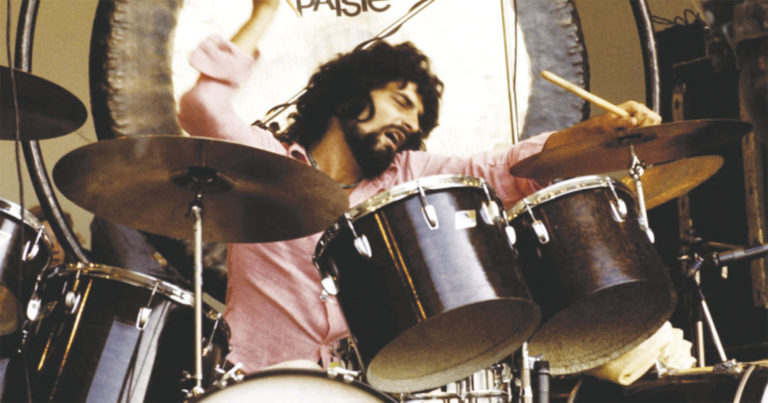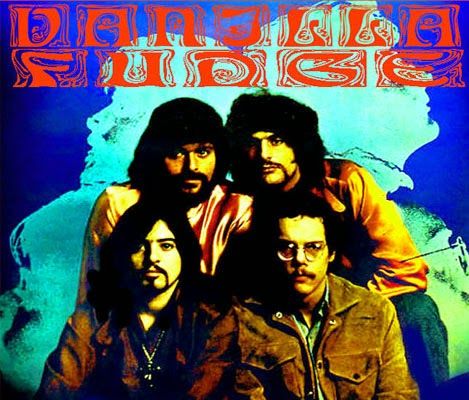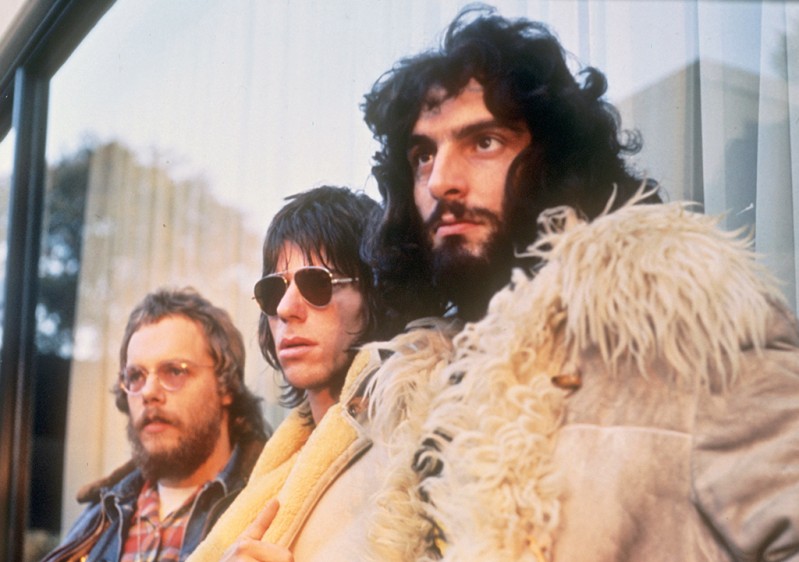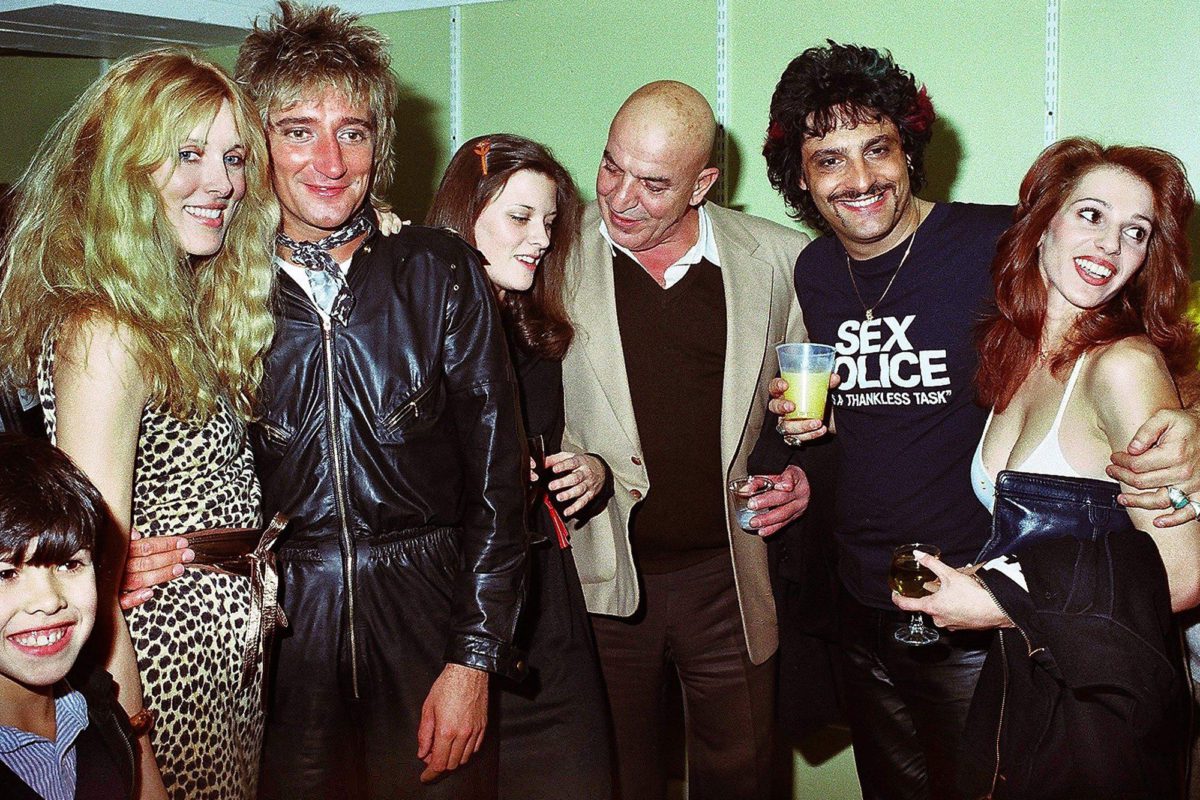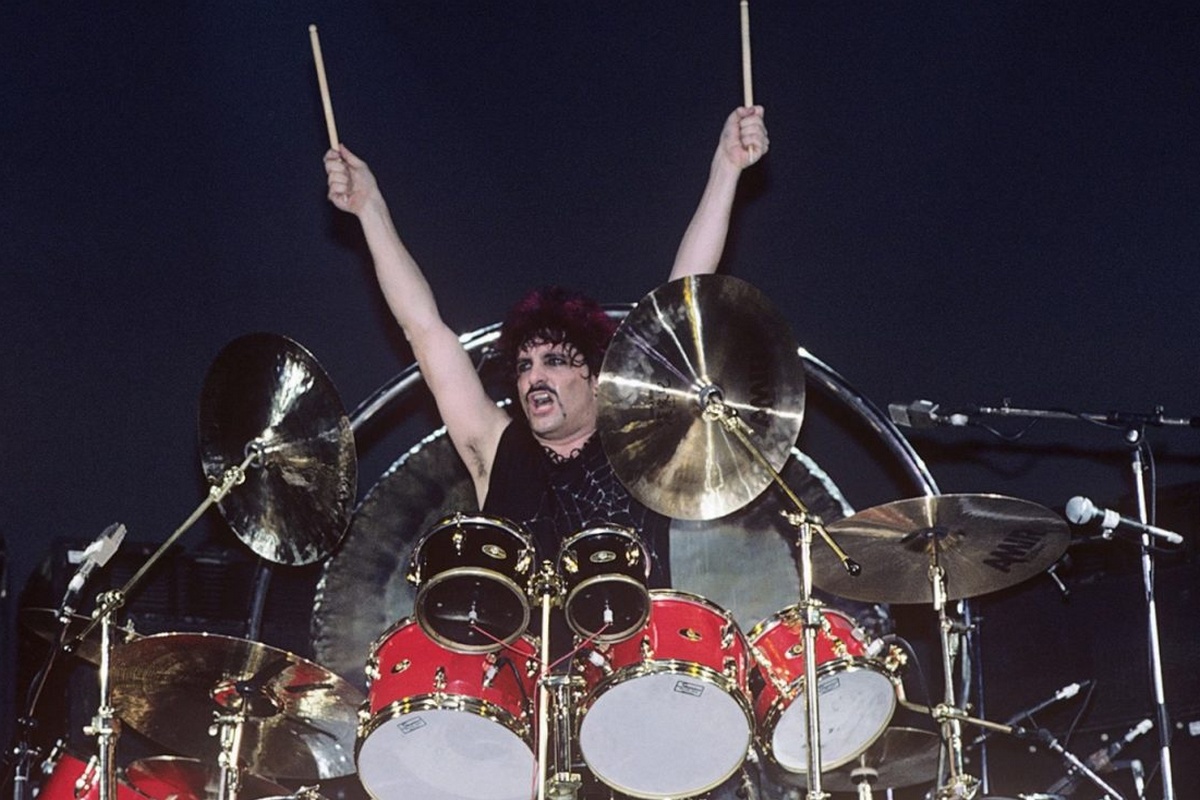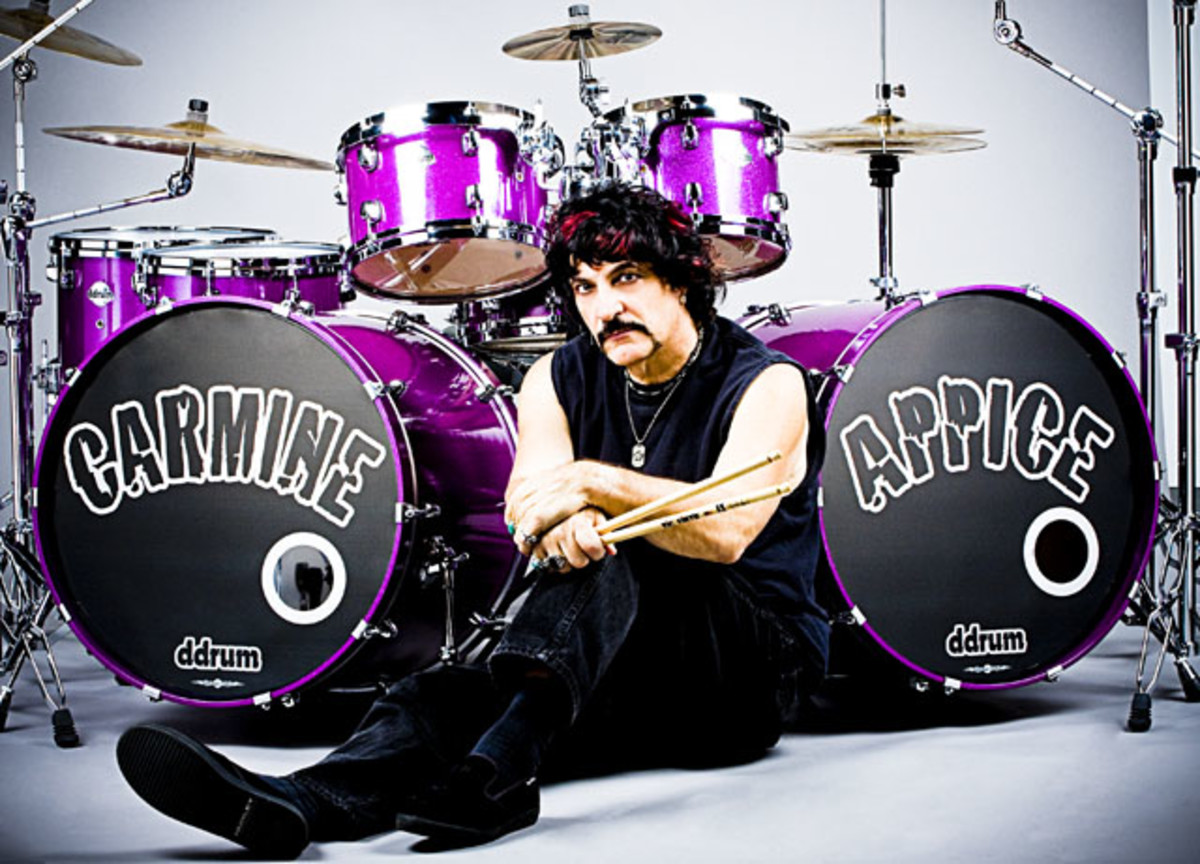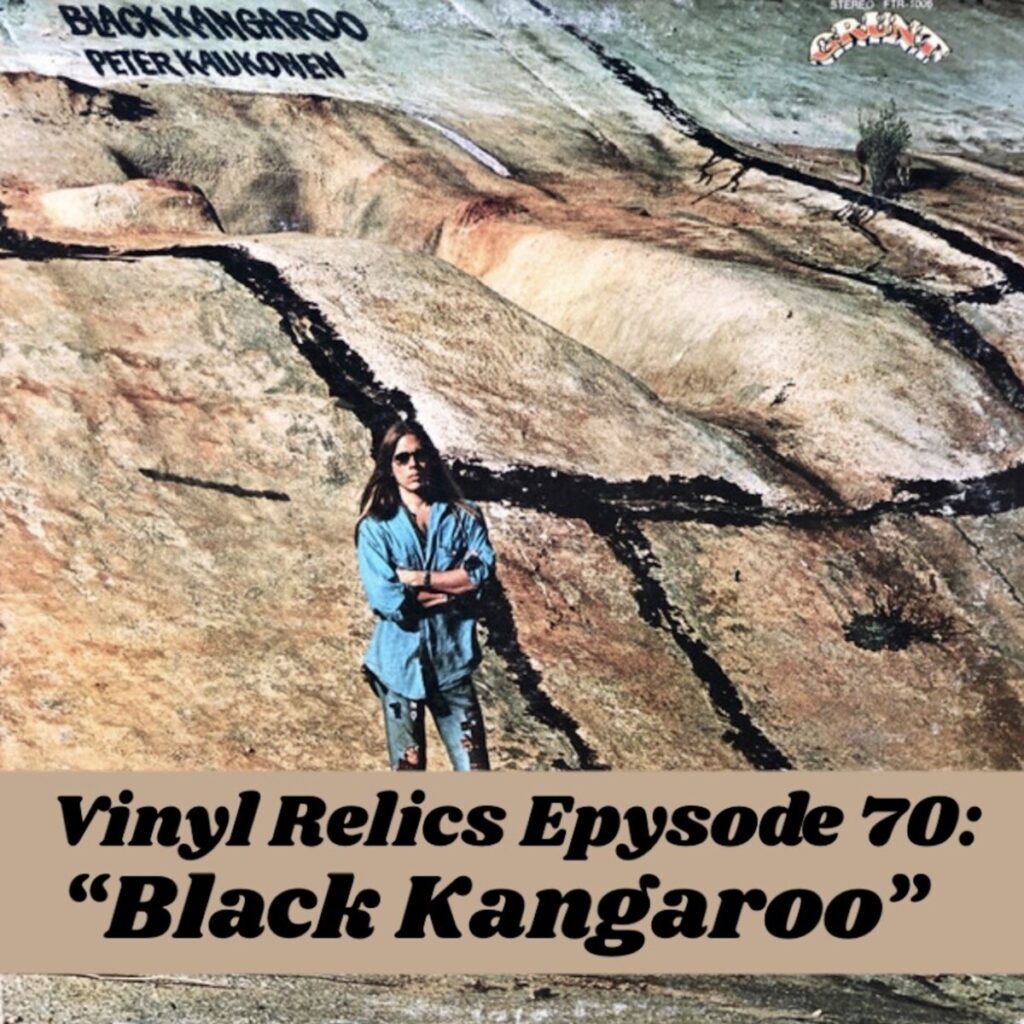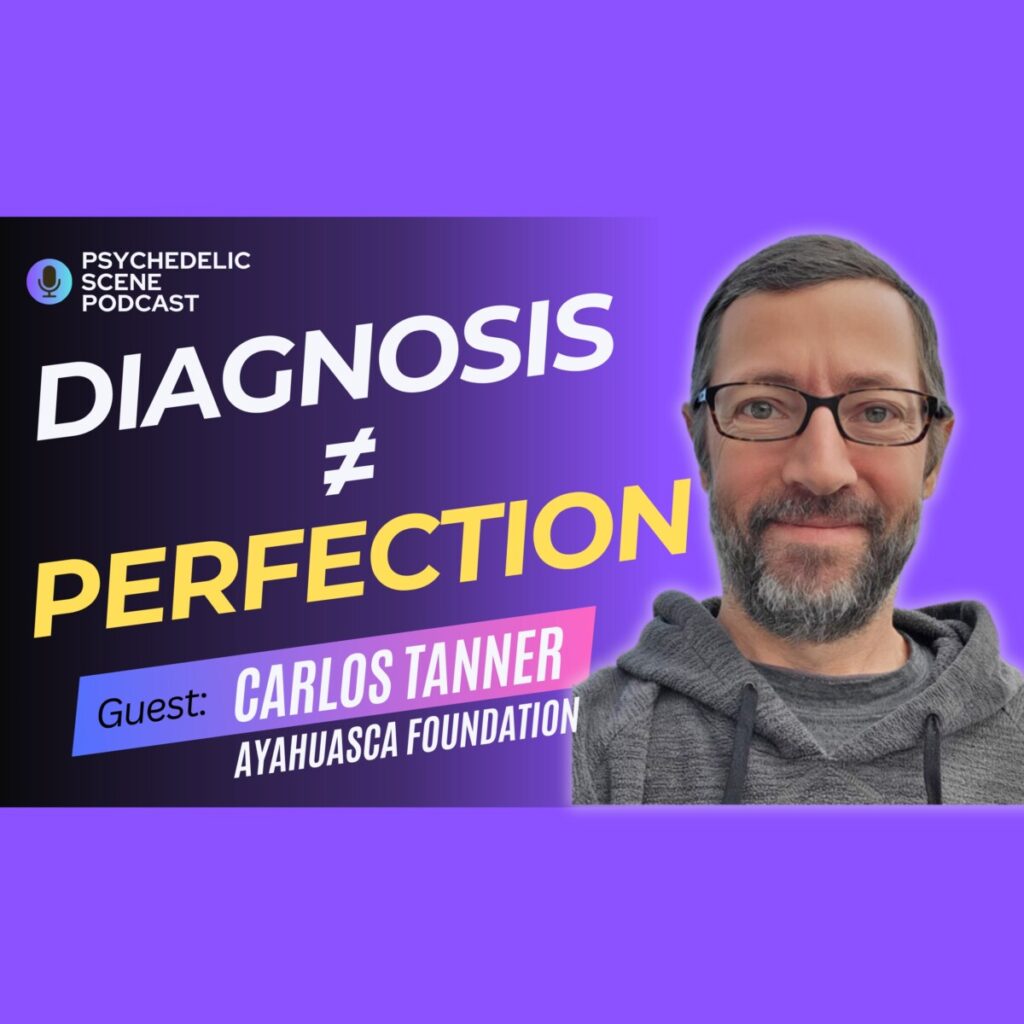Interview: Carmine Appice
Interview: Carmine Appice
LeValley: All right. So you’re somebody that’s been on my radar. My friends have been talking about you since I was a freshman in high school.
LeValley: Yeah. So it’s it’s really an honor to get the chance to speak with you face to face.
Appice: Well, cheers to that. What are you? What is this Psychedelic Scene? What does that mean?
LeValley: Well, it means that we’re interested in talking to people about mostly psychedelic music and things that pertain to psychedelia. And of course, Vanilla Fudge was considered a psychedelic band.
Appice: Yeah, without a doubt.
LeValley: And Acid Rock.
Appice: Yep, without a doubt.
LeValley: When did you first start hearing the term Acid Rock? Was that something that came after the fact?
Appice: Yeah, it came after the fact because acid wasn’t that big a deal when we first started, you know, it was more like ’68. Sixty eight was when the acid scene started getting big from what I remember. I mean, even though it was happening on the West Coast, like San Francisco. When we went to San Francisco the first time, it was like ’67 maybe. We go there probably September or August, September somewhere in there, maybe even July ’67 we went to San Francisco. You have a few people doing acid, but it wasn’t like really, really famous, you know. I did it once. It wasn’t my trip, you know? I mean, I didn’t need to get that messed up, but I think our guitar player did it and, you know, I think it kind of messed him up a little bit. And we were never really a band that took a lot of acid. We just hung around with people that did.
But we didn’t we didn’t need the acid to do what we did, you know, psychedelic. We were pot smokers, most of us. And, you know, we just smoked pot and played what we played and figured out some parts of the music that were psychedelic, which is lots of crazy sounds, and we even had a bit of a little stupid light show when we started, we had, like, five outdoor lights on each pole with each guy. And one of our roadie guys built a button system where he was on the side of the stage and pressed the buttons according to the music, you know, and that was that was our, like, psychedelic show. We went to California to the Avalon Ballroom and that guy Chet (Helms) that ran it–they had all the psychedelic, San Francisco lighting, you know, with the oil stuff and we said we want to use our own lights. We don’t want to use that crap. It was kind of weird.
LeValley: It seems like maybe you guys got lumped in. And by “you guys” I mean, Vanilla Fudge, got lumped into, like, being a psychedelic band because you were doing something different, which was putting a heavier spin on rock music and just being there in the 60s where promoters were doing light shows and stuff like you just described,
Appice: Well, promoters weren’t doing it yet. The only one’s doing it was the Avalon Ballroom and the Fillmore. We brought our lights there. I was I was on the polls and we wanted to use our lights. But I’m really working on my manager who was with us at the time, Phil Basile–He had a fight with those guys to try to use our lights. I can’t remember if we used them or not. I know when we ended up going to The Fillmore with Bill Graham, he wouldn’t let us use our lights. We had to use his lights, which were those same kind of lights. But by then it was the Fillmore and the Avalon. The Avalon was fading away. And The Fillmore–all the people were going there and everybody was doing acid and shit, you know? And I remember when we played on New Year’s Eve of, I think, ’68. In 68, played the Fillmore and and somebody– I guess somebody put some acid in the drinks backstage. So when we hit the stage, we were all fucked up, especially our keyboard player. Mark was really fucked up. He was singing weird shit and doing weird things and we didn’t even know what the hell he was doing.
LeValley: So the only time that you did it was unintentional?
Appice: That’s me. That’s me. Somebody else like Vinnie tried it before that. I don’t know if Tim ever tried it. Mark definitely tried it once or twice, but we weren’t really that into it. Some of these bands or they were on acid all the time. San Francisco bands, you know, and drinking. We were never really a drinking band either. Oh, no.
LeValley: Well, that’s that’s interesting. It’s interesting that you seem like maybe you guys were kind of straight edge, relatively speaking.
Appice: Well, we were potheads.
LeValley: Well, pot is considered a minor hallucinogen.
Appice: Yeah. We smoked pot quite a bit when we did our first album. We were smoking all the time. Yeah. Listening to the Beatles’ Revolver, which is psychedelic. We had a bit of psychedelia and craziness to our record from listening to the Beatles and smoking pot and playing. We were playing in Newport, Rhode Island every night. So as we were rehearsing, we we would you we would open it up and and open up our brains and our minds. You know, whatever we were doing. And what we did was we gelled music to the lyrics, you know. Like “Eleanor Rigby” was very eerie, moody, and strange just like the lyrics. “You Keep Me Hanging On” was hurtin’. You know, we slowed it down, put emotion. “People Get Ready” was like a gospel thing. And I guess, because we changed everything so much and we we put some crazy stuff in there, and basically they put us in the psychedelic era, which, you know, I guess we were. I mean, we had albums called Psychedelic Sundae and stuff, you know, but, I guess our psychedelic stuff came out of like, we’d hit ‘record’ and everyone doing crazy stuff and sound effects and then leading that into a musical passage.
Rolling Stone
LeValley: Well, let’s let’s back up a little bit. I wanted to ask you, when you first started playing drums, how old were you?
Appice: I was a young kid going to my cousin’s house, getting on his drums, banging on pots and pans later and getting a drum set when I was 10, maybe? You know, a little drum set and based on the snare drum and cymbal. And then took less than six months after that at maybe about ten and a half or 11. Around that age.
LeValley: I read that your biggest influences were jazz guys: Gene Krupa and Buddy Rich. When did you decide that you wanted to do something different? Because that seems like a far cry, almost a 180.
Appice: Well, I mean, that was my influences to play. But, you know, rock was coming up. Yeah. ‘50s rock. And, you know, to my teens, I played all kinds of gigs, you know, and the gigs that I played were like weddings and bar mitzvahs and rock dances, church dances and jazz gigs. I played everything so round about my playing. So I was able to play anything. And then little by little I started catching over more towards playing rock and have show bands that play rock and then just more rock and, you know, eventually started turning into more rock gigs than anything, you know, because rock was getting more famous and there was a lot more rock songs to play. And then you had the R n’ B stuff like James Brown, Wilson Pickett, Otis Redding–all that with horns. And I have bands and horns and we played a lot of people and be like that. And like we used to goof on the Beatles like a wedding or at a dance. We’d do a Beatles set and put dirty lyrics to their songs and wear Beatles wigs and goof around and kid around.
LeValley: This was like when you were a teenager?
Appice: Yeah, I was about 18 when they came out in ’64. I was 17 or 18. And I thought they sucked when they came out. “I Want to Hold Your Hand”. It was teenager, teeny-bopper stuff. But as I got older, I learned more about songwriting and now I know, but then I didn’t. I didn’t really get to know how good they were until, like, I remember the song “Daytripper”. And that came out, I said, “Whoa! That’s a pretty cool song”, and then I heard “Eight Days a Week”, I thought that was a cool song, and then when they came out with Revolver, that was amazing. That was like a pot smoker’s dream album.
LeValley: Yes, absolutely.
Appice: And we we listen to that all the time. We got a lot of ideas from that album when we did our first record.
LeValley: Yeah, you mentioned songwriting, and I know that you were in Rod Stewart’s band from like the late 70s to the early 80s and that you actually co-wrote some of his biggest hits like “Da You Think I’m Sexy?” and “Young Turks”. So, I mean, I understand that a drummer can write drum parts, but how does a drummer help compose a hit song?
Appice: Well, you have to know how to play other instruments.
LeValley: So you play other instruments?
Appice: I play enough keyboard, bass and guitar to write songs. I have an iPad now that I write songs on the iPad and I play all the instruments. I just wrote a Christian song I’m recording. So I play enough keyboard. I had theory and harmony in high school and I was singing in doo wop groups all my life. And since I’ve been playing drums, I sang in the subways in New York City to get the echo and we would chime off like “bom bom bom”. That would be the key. And then from there we would sing all those 50 songs “Still of the Night” and “Hey Little Girl”. Frankie Lymon and the Teenagers, “Why Do Fools Fall in Love?” And we’d do all that stuff without any instruments. So you learn to build chords and you learn how to sing by doing that. So I’ve been singing all my life.
LeValley: I know you’ve sung backing vocals on a lot of songs, but what about lead vocals?
Appice: I sang with Beck, Bogert, and Appice. I sang 60 percent of the lead vocals.
LeValley: Wow, OK.
Appice: And with Vanilla Fudge I sang “People Get Ready” and “Faceless People”. I sang “Where Is Happiness?” You know, and on my albums with Pat Travers, I sang 50% of the songs. I wrote them, I sang them. Same thing with Derringer, Rick Derringer and myself.
LeValley: I’m going to have to go back and listen to some of those songs.
Appice: I mean, I didn’t sing with Cactus. I sang background with Cactus. I didn’t want to sing that. BBA, I sang a lot of everything. If you go on YouTube and look up “Morning Dew” by Beck, Bogert, and Appice, I’m singing my butt off and I’m playing my ass off. I’m looking at that now and going, “Man! That was hard”. To do it now would be very difficult at 74 years old. My voice is kind of shot down anyway.
LeValley: Yeah, I wanted to ask you about playing heavy music at your age? Has age been a factor?
Appice: Not really. I still play the way I play now, but I look back and when I played like this in 1970, I look like Animal from The Muppets, you know? I mean, I was wild. I was crazy. And I learned you don’t have to hit that hard with your full arms like that, you do it all from the wrist and get big power. So you learn how to do things as you get older. I mean, I still play with a lot of notes and overplay. You know, like right now, I have this church. I go to a Christian church and they have an amazing band, and I’m working with the singer and writing some Christian songs. And then he asked me if I would play with the church band in case the drummer can’t make it, which happens sometimes, and they bring in a replacement, but he’s not very good. I said, “I would love to play with you guys” because the band is awesome. They got four singers. They got great musicians and like when they play soul, they play funky. They play gospel. They play Latin, reggae. They play everything. And I love all that stuff, you know. So I was just sitting down today. He showed me an app where you download these songs that they play and you can take the drums out, you can hear everything, just click and plug it into my system. I played an hour and a half of this stuff–over and over one song and another song of the song. I really liked it, you know, and I found myself sweatin’ and saying, “Wow, that was a workout”, you know? I’m not done yet. I’m going to continue because it is enjoyable. I really enjoy playing stuff. So that’s great. I’m not unlike my brother. My brother just plays heavy metal and I like to play everything. I like to play reggae. I like heavy reggae stuff. I have an instrumental album coming out, which is is kind of rock jazz, but it’s heavy, not like Metallica heavy. Heavy like Vanilla Fudge heavy. And, you know, we did like a rock jazz reggae instrumental version of “Da You Think I’m Sexy?”.
LeValley: It’s really cool, yeah, I listened to a heavy version of “Da You Think I’m Sexy?”.
Appice: Yeah. Me and Pat Travers. Yeah. That that’s another one. I sing that.
LeValley: Yeah, yeah. That’s great. I, I think I like that version better than the disco version.
Appice: Oh yeah. Well, the disco version wasn’t a disco version when we wrote it, it was turned into a disco version by Tom Dowd, you know? We wrote it to be like “Missing You” by the Rolling Stones. And that was a disco beat, which was basically four notes on the bass drum. Quarter notes on the bass drum as Charlie Watts played 40 notes, quarter notes on “Missing You”. But nobody said that was a disco song. What made it a disco song was all the strings and all that stuff. You know, that’s what makes it the disco song and the drum sound that you put on it made it thinner, made it more disco. When we recorded that with three guitars, a keyboard, bass and drums, it was big and fat, you know? That was on one twenty-four track. Then they added another twenty-four track and put an orchestra. Then a little bit later some girl singers singing way up octave singing it, you know, and then put another keyboard on it. David Foster was put on it and Tom Scott was put on it and then a conga player was put on it, you know, and as you put all this stuff down, the original track kept shrinking in heaviness and size, and that’s what happened, but, hey, can’t complain.
LeValley: No, it was a number one hit.
Appice: Number one in every country in the world and still going. Matter of fact, they just released a box set of Rod, which is four albums on it. And then there’s also about six or eight new tracks on it that were never released and I’m on all those tracks and I’m on two of the albums of the four, so I’m on the majority of the album and the tracks that are new you can tell are not really finished. But the band was smoking and Rod was singing his butt off, you know? And those were done the same time as “Sexy”, you know? Rod sang his butt off and the band was heavy. It sounded great. I just listened to it yesterday.
New York Post
LeValley: So cool. You mentioned that you’re going to church and running Christian songs. How long have you been doing that?
Appice: Well, since. Religiously, as I say, since I almost died two years ago, I’ve had these really bad things with nosebleeds, where I’ve had surgeries where they go up an artery and they block up to where it’s bleeding. And I was in Europe with my brother in the Canary Islands and I got one of those hemorrhaging nosebleeds. And it took me a week to get home. And at one point I woke up after they packed my nose and knocked me out. I woke up in a dark room, a really big room with a little light in the corner. I thought I died. You know, I grabbed my cross I always wear and I prayed “Jesus, me out of here. Please help me, somebody. God help me get out of here”. And I got out of it. I had to take two medical airlifts. I had to go back to Paris because of what happened. We were in the Canary Islands. We left, went to Lisbon, took a business class flight back to New York, had a nosebleed on a plane. They dropped me and my brother off at the Azores in the middle of nowhere. And then I had to get a medical airlift to the nearest English speaking hospital, which is back to Europe in Paris. My wife had to fly over. My brother had to leave. And then she got another medical airlift to the Paris hospital, a bunch of idiots, and they wouldn’t listen to us. And if I had to fix this and they wouldn’t talk to our surgeons in New York and I took a flight back to New York, a medical Halifax of the second one. And when I got back there, I had packing in my nose that was infected. The doctor told my wife one more day I would have been dead.
LeValley: Wow. And that was two years ago?
Appice: This was ’19, right? And then so when I got back home and started healing up, I started listening to the Bible every day because I know there was definitely intervention from God. Yes, I was. I was on my way out, you know? And I got turned on to these Christian churches. So I never I stopped going. I was born a Catholic, baptized, and I used to have the Catholic Church. You know, when I started hearing about priests that you say you communion, your confession to going out raping young boys. I got turned off to the Catholic Church when I went back to the church who was an Episcopal church where you didn’t have to do that, you know? And then I got turned on to this Christian church in Connecticut where we had a house. And I went and they had a really cool band, and it was like a theater is like an arena like seven hundred-seat arena. And I said, wow, this is a better way to, you know, to go to church. So I started going there and then I found that there was one in L.A. where I had a house around the corner.
Appice: I go to the Episcopal and when I was in Connecticut, I’d go to the other. And we moved to Florida, here, my dog trainer turned me on to this church down here. I went the first day and I said, oh, my God, this band is unbelievable. And it was like a revival. The whole audience is up. They’re dancing, they’re singing. They’re praising of the Lord. I mean, it was, you know? I’m in the South right here. It was amazingly inspiring. The only drag is that they had an electronic drum set and it was terrible. So I called Ddrum and I said, look, there’s a church. I want to get a drum set. Can you do that? So Ddrum, my endorsement company, sent a drum set down to the church when I came in, I set it up with them and then I realized that the guy playing the drums was awesome. Twenty eight year old kid that was really great, you know, and I started going to church there every week and I had written a Christian song. And I use some of the lyrics of when I woke up in the dark and saw the light, you know, I used the lyrics, what I felt like at that point. And it was called “Jesus Forever”. And I had an iPad and it was the very first song ever wrote on the iPad musically.
Appice: I wrote it on a plane with earphones and I thought that was so cool. I’m sitting and there’s a guy next to me. I was in the business class and I’m writing a song on the iPad and I’m playing guitar and drums and piano and stuff. But I got off the plane, I had a song and I thought I got a kick out of that because the guy next to me wasn’t even bothered, you know, because you couldn’t hear nothing. Right? And then last year when It was 2020 we went to- we have a house in St. Martin in the Caribbean, so we went there with a couple of friends of ours. And I was showing them how to use the iPad and I showed them that first song, and when the chorus came up, this chorus came in my head of “Jesus Forever”. And I said, “Whoa” I said, “I’ll be right back”. And I went in the other room and I actually sung the harmonies and I put the cords down real quick so I wouldn’t forget it. And then I wrote the rest of the lyrics and I wrote the lyrics by going to the church down here. Right? I would listen to what the pastor’s talking about and I would write down things that I would like that he said. And then I looked up stuff in the Bible and I put all the lyrics together for a song like that when I put it together. And I recorded it here on the I put the iPad on the my computer. I put the drums on it, then I sent it to the guy I’m doing the instrumental album with– this guy, Fernando Perdomo, tremendous talent, 40 years old, plays, guitar, bass, keyboards, drums, amazing player. And we have a record coming out probably in August called Energy Overload by Carmine Appice and Fernando Perdomo. And we’re doing videos for it. And this instrumental stuff is really hookey, good stuff. It’s funky, it’s heavy. It’s R n’ B and Gospel. We did “Maybe I’m “Amazed”. And we put all these gospel harmonies behind it, you know? Instrumental. So I got him to play bass and guitar following my arrangement. I put on the iPad and then I got the guy at the church is an amazing singer. He sings like Justin Timberlake–soulful like that. I got him to put the vocal on and it came up. I said, “Wow, this is great. This sounds really good”. And everybody I played it for loved it. You know? So I wrote another, and now we’re on the third one.
LeValley: So this stuff is going to be put out there under what name?
Appice: I’m going to say, well, we’re going to call it Cary the Cross because my first initials are CA and his last two initials are RY. And a friend of mine who is a DJ in New York is also a Greek Orthodox pastor or something. I told him I played him the song, he loved the song. And I said, I don’t know what we should call us and he said “Carry the Cross”. I said, “Wow, I like that”. And then I thought about it. Instead of two R’s, I put one R and had my web guy do the logo already, you know? So and we got a whole plan for it. When we get it all mixed, I’m going to send it to everybody in the church out here and the pastor is going to get involved, the head guy, because I played him the song. He loved the song and he loved the story of me almost dying that saved me. And that’s when I became more of a Christian. And he loves that fact. So he wants it for, like, a testimony on video and then play the songs with the band at the church and when we do that, I want a video it all, and if we send it to the people, they’ll know the songs and they’re a singing church.
Appice: You know, they’ll be singing the songs, they’ll be singing the choruses with us and we’re going to video all of it. And they’ll have official videos with the band playing live with the whole audience singing and stuff. That’s the plan, as well as all the other crazy things I’m doing.
LeValley: Such as?
Appice: Well, we’re waiting to release a Beck, Bogert, Appice live album that we did. We got Tim to sign off on it before he passed away. And that has seven new songs on it. And I’m singing a lot of them, as we’ve talked about before. We’re mixing a single for Vanilla Fudge, the last song that Tim Bogert recorded with us. The Supremes song. It’s going to be “Stop in the Name of Love”. We’re going to release that probably end of August to coincide with the fifty-fourth anniversary of Vanilla Fudge’s first album hitting the charts and the release of it. And it’s a tribute to Tim. I’m releasing this, you know, Fernando-Appice album, the instrumental album. And I’m working on a new King Kobra record right now. Plus, I just finished doing a video for a new track for my Guitar Zeus record that I am doing the 25th anniversary box set on that, and we’ve been working on that for a few months now. There’s three new songs on it. One of them has Tommy Thayer from Kiss playing on it. And then we have Derek Sherinian from Sons of Apollo and we play with Joe Bonnamassa. He’s playing synthesizer like a guitar player. So he’s soloing on the synthesizer as a novelty. And I have two or three other things that Bumblefoot on another new track. And we got some videos to go. So we just did a video for this one. And then we got–it’s going to be four LPs, three CDs is going to be three or four tracks that were not finished like bonus tracks that have no guitar. So guitar players can play along or singers can sing to it, you know? And then there’s going to be a medallion of my logo– my face logo– on stainless steel of the necklace with a guitar pick on it and and a booklet that has interviews, brand-new interviews with some of the guitar players. So that’s coming out on August 29th. I’ve been busy.
LeValley: Yeah, sounds like it. I wanted to ask you about Hear n’ Aid. You participated in that event and an album that was kind of coming in on the heels of the USA for Africa and that Band Aid in the mid 80s. What was that experience like?
Appice: Well, I wear hearing aids now (laughs).
LeValley: I’ll bet! Most drummers do.
Appice: Yeah, you have to have them because the cymbals just knock the hearing out after, I mean, I’ve been playing like 60 something years, 62 years. You know? It’s crazy to think about that. I should be better. (laughs) But it was good. Ronnie was a good friend of ours, and my brother played with him. He was like family in those days because he didn’t have any family in L.A. We had our whole family that he used to come to our Christmases and Easter and birthday parties. And he’d been to a couple of my weddings. I was out there and, you know, say they were putting this together. And he asked me if I can do it with my brother, with my brother did the track. And I was out touring with King Kobra. I flew in specifically just to be in that choir, per se, and do the interviews and be on the video and get involved. Matter of fact, we’re doing something for Dio’s birthday July 10th. Me and my brother are doing a live lockdown kind of performance of our thing that we do.
LeValley: Like a live stream?
Appice: Yeah, like a live stream. And it’s a whole big thing for Dio’s birthday. And there’s a lot of people on it, not just us. There’s a list. I got a Google alert today with my name in it. I can’t remember everybody. It’s just a whole bunch of people, you know, and everybody’s doing something that’s some sort of event for Dio. It’s for the Dio Cancer Fund, you know? And so we’re going to do that and we have to work it out where Vinny’s going to open up a session on Cubase like I have. And he’s going to time it out. OK, we’ll both start playing eight bars here and then I’ll take the first eight bars while you do this? You know, like a bit from when we do live. It’s called Drum Wars. The song “Drum Wars” that we do live, which has drum bits in it, you know? So we’re going to do about three, two or three minutes of that. And so we have to we pre-record the thing with video as we do it. So I’m going to have a video guy over here recording me while I’m doing it, you know? He’s going to video it and then we’re going to send it to this company and we’re going to have a call with to talk about how we’re actually going to physically do it, because I don’t really know. I’ve never done this before. I’ve done stuff like this by myself. And I just had Nicko McBrain from Iron Maiden over here. I engineered something that we both did for a charity. I did mine separately. So he needed a place to do it so he came over here and did it. And we videoed it and I engineered it. I’m like Joe Engineer now; it’s funny.
LeValley: So you’ve got a new record out with Cactus also.
Appice: Yes, yeah, totally.
LeValley: I put the song “Tightrope”, which I guess is the name of the album as well, on one of my playlist I’ve been listening to. That sounds great.
Appice: It’s a great record that we’re getting great reviews saying that this is the best Cactus record that was ever released. And I think that’s saying something, you know, because that’s what we’re shooting for from the production to the songwriting to the playing, you know, everybody’s individual performances. Working with Paul Warren was wonderful. He’s a talented guitar player, a songwriter, and producer. So me and him and produced it together. The mix is long distance. He lives in Nashville you know? I was in New York, but it was long distance mixing, you know, and when we finally finished it all and listened to it, we said, “Wow, this sounds great”. Every song was really a good song. Everything was a little different. All the tempos with different feelings, with different lyrics and different. Jimmy Kunes did a great job with lyrics, you know, and sometimes we say, what about changing that lyric there to this? Something, you know, and we needed one more song. We didn’t have any more ideas. I have this song which turned into the song Elevation. You know, I wrote that years ago on a four track and I had it for years and I didn’t know who to wear to bring it up, to play it with the band. And we needed another song. I just happened to have that on my iPod, you know, so I played it for everybody. Let’s do it! So we learned it, added some stuff to it, put it down straight away in like two takes, and then gave it to Jimmy and he put the lyrics to it, you know? But great record, great record. Did you listen to the whole thing?
LeValley: I listened to that. And what’s the one..Mama? Papa?
Appice: Oh! “Papa Was a Rolling Stone?” Yeah, you got to listen to the rest of it, man.
LeValley: I’ll listen to the rest of it for sure.
Appice: You’ll dig it. “Papa was a Rolling Stone” has a story to it. Paul Warren played on the original by The Temptations.
LeValley: Oh, wow!
Appice: So when he joined the band and told me that and I said, well, you know, when we go on tour, let’s play the song, you know? So when we toured America and Europe, we would announce to the audience and say, “Here’s a song you might know. Our new guitar player, Paul played on this when he was 18 years old. So let us know if you like it”. And then we start playing the intro. Nobody knew what it was until we started singing the song and the chorus. And then when we were done, they went crazy. They loved it. So we went in the studio. I thought it was the first song we did, but Paul remembers it being the second song we did, you know? But anyway, we just played it. And we said, well, look, why don’t we try this and try it out and we added little things to it and and we recorded it and it came out great. And that’s going to be the next video and the next single. I just did the drums on that two days ago, along with the song called called “Mystified” from Guitar Zeus for the videos. And Paul is having something wrong with his wrist. He just had a surgery a couple of days ago and he said within two weeks he’ll be able to go in and make believe he’s playing and singing. He sings the first verse and the last verse and then Jimmy and him sing verses together like The Temptations, you know?
Bill Lewington
LeValley: What? Why don’t you tell us what Guitar Zeus is? I mean, I have a general idea that it’s like a series of albums featuring guitar players and you. Well, you explain it.
Appice: It’s more than that. In ’92, I was doing an album in a band with Joe Lynn Turner, me, Jeff Watson, and Bob Daisley. But when we were doing it, it was like when Nirvana was just getting big and all that grunge so we were like has-beens, you know? But even so, Jeff Watson just came out of Night Ranger and got a solo deal just like that. I had a solo deal in ’82. This was ’92, but I was still trying to get a second one, which, by the way, I sang all the songs on that. Anyway, I said, “What do I gotta do, be a guitar player to get a solo deal? You come out of Night Ranger, you get a solo deal like that?” So I said, yeah, I got to be a guitar player. I said, maybe I’ll do an album and I’ll call it Guitar Gods and I’ll bring in all my friends to play guitars and maybe I’ll get a solo deal like that. I was kidding around, you know, and then went to bed that night, and, you know, when you’re in bed, you start churning your mind, you couldn’t shut it off and kept churning in my mind. That’s a good idea. You know, that’s a really good idea. Now, we were screwing around. That band was called Mothers Army, you know, and it did OK in Japan. It never was released here. And we were going to call the band Zeus after the Greek god Zeus, you know? So when I said guitar gods. I said, no guitars. It’s like, you know, Zeus was a god. So I said that that afternoon. So when I’m sleeping, I’m thinking, Guitar Zeus, what a cool name. That’s a good name. That’s a great idea. I got it. How do I do that? How can I do this? So over the next couple of years, which it took, I would run into guys like Brian May when Queen was broken up. You know. Freddie died. I was doing a clinic in the House of Guitars in Rochester, New York. And Brian was doing a clinic too. And I ran into him. I said, Brian, if I do this album, would you play on it? Yeah, I’ll play on it. Then I run into Ted Nugent. I asked Ted. He said, “Yeah, I’ll play on it”. And I ran into the King’s X Guys, Doug and Ty. They said, “Yeah, I’ll play on it”. And then I asked this guy Doug Aldridge to go to Japan with me, Tony Franklin and Kelly Keeling, because we played on the second Blue Murder record that was released in Japan that was huge, but we weren’t in Blue Murder anymore. So I asked Doug to go with us because he was big in Japan.
Appice: He said, I can’t do it, you know, and I was dealing with his manager, this guy, Warren Wyatt, and I told Warren my idea of Guitar Zeus in 1992, 1993. I said, oh, I can do this, actually 1994, my mistake, 1994, He said, “I could put a deal out of Japan together.” I said, “You can?” He said, “Yeah”. And he did. He got this big record deal out of Japan, right? So Kelly Keeling sang on the 2nd Guitar Zeus record, great singer, so I met with him. I said, “What kind of songs you got?” I listen to some of the songs that were awesome, except there was too much. There was too much song. It was like 15 parts to the songs. I’d have to be like a butcher and cut the fat off the songs and mold them into really good songs. So I said, OK, so now I got a co-writer who’s really good at plays, guitar and a singer to sing it. And he has Tony Franklin who was my favorite bass player and my good friend. I want you to play in this. He said no problem. So I had me, Tony and Kelly. And I had a record deal and I had a guitar. Three name guys to be on the record. So we started recording in L.A. We wrote songs. Me and Kelly. I put him in a hotel. He’s a space cadet. I’m dealing with him today. He’s still a space cadet, you know, and I had to put him in a room in a hotel with a four track. And I go there from 12 o’clock to eight o’clock at night and we put all these ideas together and then leave him alone to record the ideas and then come back the next day and he’d have it recorded. After about two weeks, we had all the songs together with no bass, and we send it to Tony Franklin. He put based on it. We had a four track demo that we knew. So we went in the studio, we had it down. First guy I got on there was Brian May.
LeValley: Wow!
Appice: Second guy was Ted Nugent. And the third was a King’s X, and then I said by getting these guys on it and I call up Slash and he’s going to say, “Who’s on it?” Brian May, Ted Nugent, King’s X. King’s X was really happening then. “Whoa, OK, I’ll do it”. And I got Slash. And then Kelly was working with Yngwie Malmsteen, you know, and Yngwie heard about it and he wanted to be on it. So I flew to Florida, I got Yngwie on it and I played on one of Yngwie’s tracks. So that’s what happened. It was one after another. I kept getting people and then I paid them. Had enough money to pay everybody good money, you know, and still make some money myself and I released it in Japan, and it went big over there.
LeValley: Wow. So there’s another Guitar Zeus coming out?
Appice: No, then we did another Guitar Zeus. We did Volume Two, OK? With different guys, a couple of repeats and we had Richie Sambora on this one. We had ZacK Wylde on the next one. It’s a whole bunch of other guys. And then I did a Guitar Zeus of Japan, which is Japanese guitar players, and I did Guitar Zeus Korea. Right? So it became a whole series. It was unbelievable. And then I released it and then it was released here, you know, but it did great in those markets. And the first album and second album I probably sold, around the world, two hundred thousand units of Guitar Zeus. In Europe was big. Japan, Asia, and I never really toured there with it. And then I released it here in 2005 and the label went out of business. Then I released it again in 2010 as a double album, and they didn’t do nothing for it. And in 2016, I released it on my own label called Rocket Records 2016-17. I sold I made LPs and we did that. And then I forgot how I got hooked up with this company. I think they just called me and asked me if I was interested in doing a box set of Guitar Zeus and I said, “Let’s do it”. So that’s how this came about now. So now I have thirty seven tracks on there and some new tracks and like I said, all that stuff before and I got all these guitar players on it, you know, Jennifer Batten and Leslie West, Bob Daisley and Zach Wylde, Elliott Easton, and Warren Demartini. God, I can’t remember some of them. I have to look at the list, you know, to see. Stevie Solace, Ted Nugent twice, Slash, Yngvie Malmsteen, Steve Morse, Paul Gilbert. I know I’m leaving some out, you know? Bumblefoot, you know, even a Japanese guy named John who’s like the Jeff Beck of Japan. Awesome player, you know? So it’s really, really amazing. And it’s some of the best songs I’ve ever written, some of the best playing songs. It sounds like Blue Murder meets Soundgarden meets the Beatles.
LeValley: Interesting.
Appice: Yeah, so you can go on YouTube and listen to it.
LeValley: Right on. I will definitely check that out.
Appice: Yeah, it’s on Spotify too–all that stuff. But, you know, I really made all the money on it years ago. Now it’s just for the art.
LeValley: It’s out there.
Appice: Yeah. I just put it out for the art because it’s some of the best stuff I’ve ever done. It’s all creative time signatures–weird progressive, heavy like Nirvana and Pearl Jam– kind of heavy with Beatles harmonies and me and Tony Franklin doing the Blue Murder rhythm section stuff to it.
LeValley: That sounds great. Well, Carmine, I should probably wrap this up, I think.
Appice: OK, yeah.
LeValley: So anyway, it’s been a pleasure. Such an honor to meet you.
Appice: Nice to meet you too.
LeValley: And I wish you the best in all the endeavors that you’re taking on right now.
Appice: Thank you. Same to you. OK, good luck, brother.
Gallery
Recent Articles

Loading...
